Wobbler’s Syndrome is a condition that affects dogs and horses. It scientific name is cervical stenotic myelopathy (CSM) and is a neurological disease. CSM occurs when neck vertebrae are malformed leading to narrowing of the cervical spine canal and then spinal cord compression. The hind legs are affected more often than forelimbs. Genetics is a […]
Horse Health
Owning a horse is a commitment to take care of all needs. It’s up to every horse owner and horse lover to ensure their health and well-being. We hope these articles help you keep your horse in the pink. Please remember that these articles are not meant as substitutes for your veterinarian. If your horse is ill, please see your vet asap.
Here’s the list!
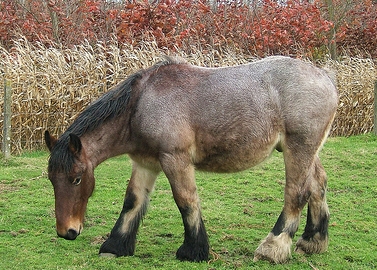
Nutrition for Foals
The first year of a foal’s life is extremely important as it can determine his/her development. Nutrition during the first year impacts future health. The first three feeding phases are nursing, creep feeding (feeding concentrate apart from mare’s milk) and weaning. Skeletal growth, tissues, organs, all are affected by the foal’s diet. Foals begin nursing […]

Feeding Horses with Missing Teeth
Adult male horses have 40 teeth while adult female horses have between 36 and 40 teeth – 12 incisors, 12 premolars, 12 molars, 2 short teeth (wolf teeth) in front of upper premolars which are usually removed. Males have 2 pairs of canines behind the molars. Horse’s teeth are hysodont which means they continuously erupt […]
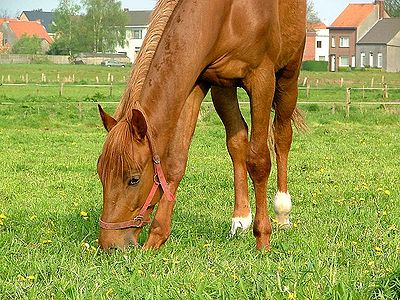
What Should I Feed My Horse
Proper nutrition can add years to your horse’s life. Diet is the foundation for raising a healthy, happy horse. Horses are herbivores, eating only vegetation. They are grazing animals and can and do forage for most of their waking hours. They are slow feeds and spend their time chewing grasses and other plants. Fiber is […]

Spider Bites in Horses
While rare, spider bites to horses do occur and they are toxic and can cause much pain. Usually the culprits are the black and brown widow spider and the brown recluse with all their relatives. A bite from the black widow spider can cause a serious reaction in a horse. The latrotoxins which are poisonous […]

Almost Natural Insect Control for Horses
These days we are rightly concerned about using too many chemicals, especially when controlling insects around our pets. There are ways you can limit the use of toxic substances and instead, turn environment friendly methods. Here are some ideas. Flies, mosquitoes and other insects are drawn to piles of manure and stagnant water. Clean manure […]
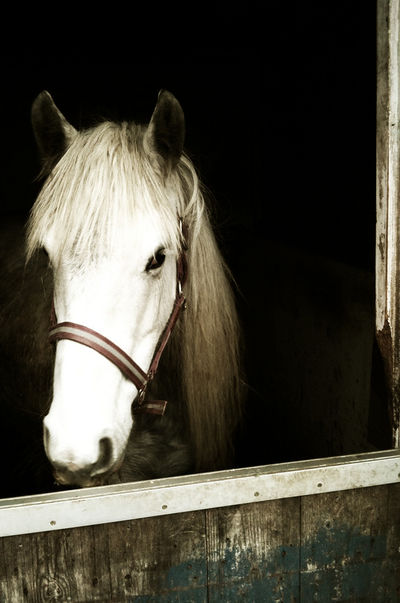
Exercising Senior Horses
Exercise is very important for everyone, even senior horses. Senior horses need daily exercise to maintain good body form and all around good health, although they may need special attention. Know your senior’s limitations. If s/he has any physical or medical problems, check with your veterinarian as to the intensity of the exercise that is […]

Understanding Your Horse’s Color
We all know genetics determine a horse’s coat color, but what does that color mean in terms of a horse’s health and survival. Horses come in different colors and color combinations and some of us have our preferences. Some of these colors are actually caused by gene mutations, a number of which can also carry […]
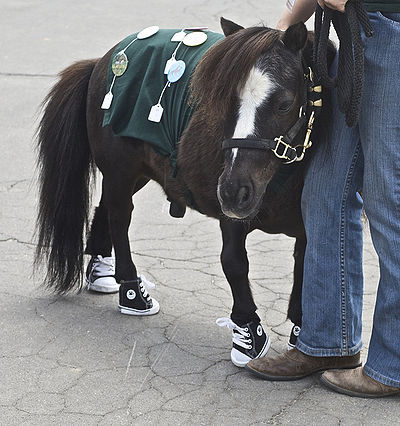
Test for Dwarfism in Miniature Horses
The gene responsible for dwarfism in Miniature Horses is called the aggrecan gene (ACAN). DNA testing for 4 mutations of the gene is being offered at the University of Kentucky Animal Testing and Research Laboratory. The mutations were found by a PhD student, John Eberth, at the UK Gluck Equine Research Center. John is studying […]
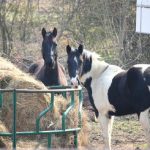
Flax Supplement for Horses
Flaxseed is coming into use as a nutritional supplement for horses. It is a plant usually grown in northern climates with Canada being the largest producer. Flaxseed is sometimes referred to as “linseed.” Flaxseed is an excellent source of fiber, containing about 30%, and fat, about 40%. It also supplies Omega 3 (as alpha-lineolic acid) […]
